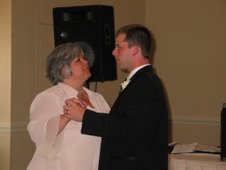I found this section in our text to be incredible helpful in gaining insight into life in early to mid 19th century England. I was unsure if
The Steam Loom Weaver ballad was meant as a ballad like I think of a ballad, as a song, but it was an interesting read. Without the introduction to the piece, I doubt that I would have picked up on the "bawdiness" of the piece. This being the case, I couldn't help but smile to think that even in circumstances as difficult as working in this cotton mill, people manage to find some sort of happiness or lightheartedness in their circumstances.
The Natural Progress of Society, was an unexpected change of pace from the other pieces in this section. Macaulay's position is that yes, things are difficult and inequitable right now, but that this will pass and in the grand scheme of things he believes that this industrial age will be of great benefit to England's peoples. It reminds me that throughout history, people have grappled with difficult times and yet each society after the other appears to be improved.
In the testimonies found in the
Parliamentary Papers ("Blue Books") and later in
London Labour and the London Poor, the stories told of the children are heart wrenching. For us today to imagine this kind of life for ourselves or worse yet for our children is unbearable....much as I'm sure it was for the parents of these children. The insights to what their days and nights were like is vivid and telling. Yet, as difficult as their lives were I still came away from these readings with the impression that they did not spend their time feeling sorry for themselves. Rather, they did what was necessary to sustain themselves. This speaks greatly to the human spirit and how much it can and does survive. Hope doesn't die easily for us today and it is refreshing to know that the hardships they faced notwithstanding, they persevered.
In Charles Dickens
Coketown and Friedrich Engels the
Conditions of the Working Class in England in 1844, we find the descriptions of the dismal lives experienced by the poor, downtrodden working classes. Particuarly in Engels passages, he clearly holds distain for the upper classes who seem to ignore the plight of the unfortunante. I couldn't help but think of the phrase from the Statue of Liberty " . . ."Give me your tired, your poor,Your huddled masses yearning to breathe free,The wretched refuse of your teeming shore.Send these, the homeless, tempest-tost to me,I lift my lamp beside the golden door!" (The New Colossus, Emma Lazarus, 1883). Through Engels strong descriptive language I could invision the dreadful state that so many lived in...and even smell the putrid odors in the air. However I can't shake the feeling that his purpose was as much to expand his political philosophy as it was born of genuine concern for those living there. Granted, this is probably due to his later association with Karl Marx.
I tend to give more credence to the words of those who actually lived the life of the underclass...and while their lives were certainly difficult and very precarious, they did not seem to harbor great animosity toward the upper class, rather they seemed to appreciate (probably too strong a word) what limited opportunities this capitolistic environment offered them.
